On July 28, student activists across Bangladesh observed the anniversary of last year`s anti-discrimination movement by launching a nationwide graffiti and wall-writing campaign, alongside extensive online and offline outreach. The campaign aimed to reinforce their previously declared three-point demands: immediate release of all detained students, withdrawal of all cases filed against protesters, and accountability for the killings that occurred during the movement.
The previous day, students had issued a 24-hour ultimatum to authorities to meet their demands, warning of intensified protest programmes if unmet.
In Dhaka, however, police disrupted the campaign. Law enforcers intervened as students of Dhaka University’s Fine Arts faculty and cartoonists were drawing graffiti near Central Shaheed Minar and Palashi. The police confiscated painting equipment and halted the activity. The graffiti portrayed fallen protesters, including a child, Riya Gope, and featured slogans such as “Sonar Bangla Aj Mrittyupuri Keno?”, “Amar Bhaider Marli Keno?”, and “52 Dekhini, 24 Dekhechhi.”
At Shahjalal University of Science and Technology (SUST), students painted an image of protester Abu Sayeed with arms outstretched, symbolizing his unarmed death from a close-range police shooting.
Universities across the country—including East West University, Jahangirnagar University (JU), Chittagong University, and SUST—actively participated in the commemorative events.
That evening, six detained student coordinators appeared in a video message from the Detective Branch (DB) office, where coordinator Nahid Islam announced the withdrawal of the movement. However, fellow protesters quickly rejected the announcement, alleging it was made under coercion. A photo that surfaced online showing the coordinators dining with DB Additional Commissioner Harun-ur-Rashid intensified skepticism.
Earlier in the day, families of the detained students were denied access to visit them at the DB office. Meanwhile, coordinator Nusrat Tabassum was reportedly taken from a house in Mirpur during a police raid.
Despite these developments, Abdul Kader, another coordinator, issued a fresh call for protests the next day, July 29.
At around 4 PM, teachers and students of Jahangirnagar University held a rally demanding the release of their peer and coordinator Arif Sohel. Later that night, when reports emerged alleging that the detained coordinators were tortured to force them into announcing the withdrawal, students across universities called for a renewed nationwide street mobilization.
On social media, students pledged to continue their struggle until their nine-point demand—including an apology from then Prime Minister Sheikh Hasina—was met.
That same day, mobile internet services, suspended for ten days, were restored, although access to platforms like Facebook, WhatsApp, and TikTok remained restricted.
The Ministry of Foreign Affairs issued a statement acknowledging concerns raised by civil society groups and international partners over the unrest and acts of violence. US Assistant Secretary of State for South and Central Asian Affairs Donald Lu confirmed that senior US officials had urged Bangladesh`s leadership to pursue a peaceful resolution to the crisis. The US State Department also expressed alarm over the use of curfews and "shoot on sight" orders.
Prime Minister Sheikh Hasina, on July 28, visited injured police personnel at Rajarbagh Central Police Hospital and later at Bangladesh Medical University (formerly BSMMU) to check on civilians injured during the unrest. At the PMO earlier in the day, she handed over cheques of Tk 10 lakh each to the families of 34 people who were killed in the protests, including Abu Sayeed.
Meanwhile, mass arrests continued. According to media reports, 10,028 individuals had been detained nationwide as of that day, including 2,764 in Dhaka alone. The capital saw 22 new cases filed, raising the total number of protest-related cases there to 229.
Left-leaning political groups—including the Left Democratic Alliance, Anti-Fascist Left Alliance, and JASAD Bangladesh—called on the government to disclose a full list of those killed or injured and to bring those responsible to justice.
Deposed Home Minister Asaduzzaman Khan Kamal confirmed that at least 147 people had died in the quota reform protests by July 28, 2024.
That same evening, the Islamist political group Islami Andolon Bangladesh demanded an immediate halt to extrajudicial killings, mass arrests, and politically motivated charges.


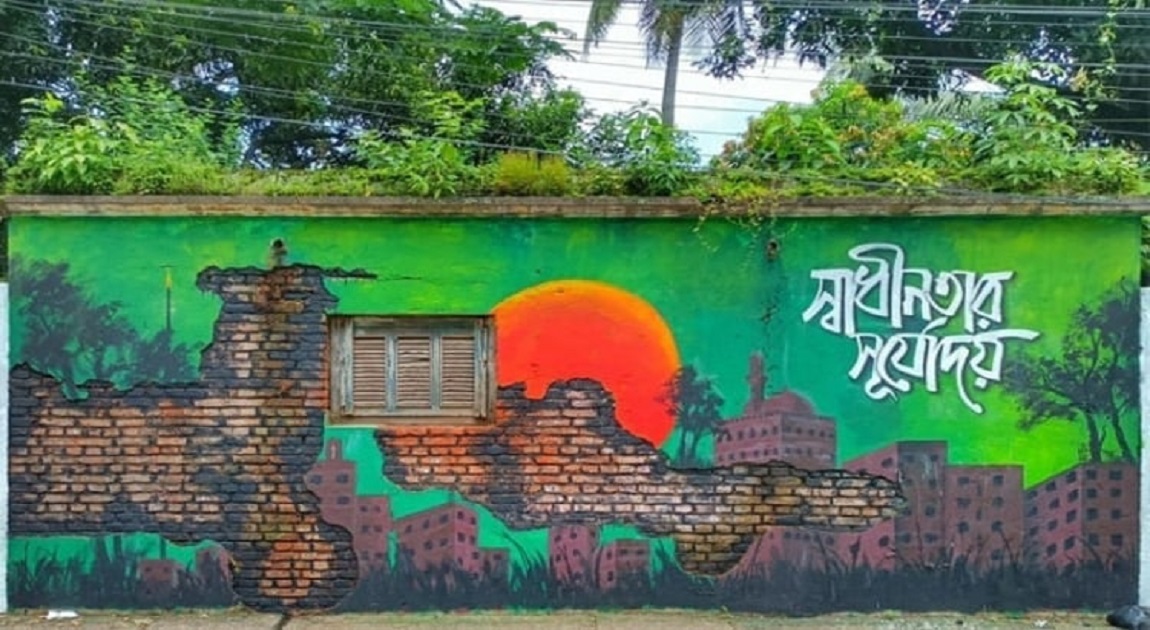

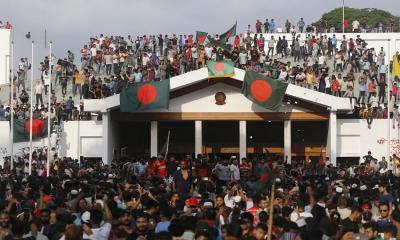
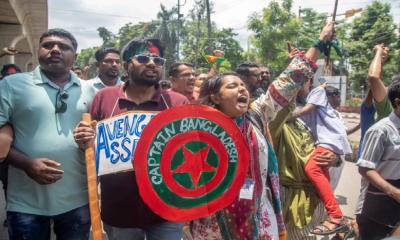
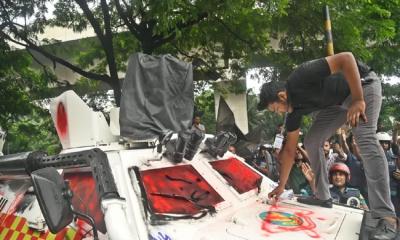
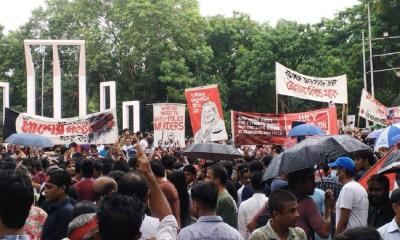
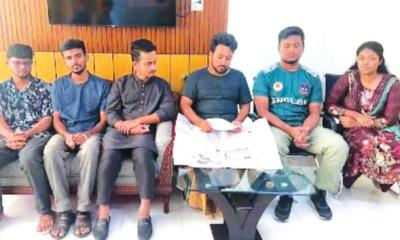
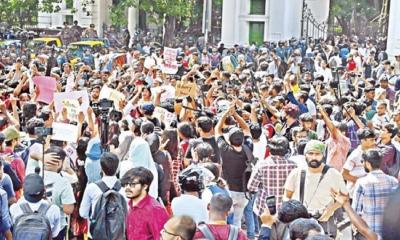
-20260228080513.webp)
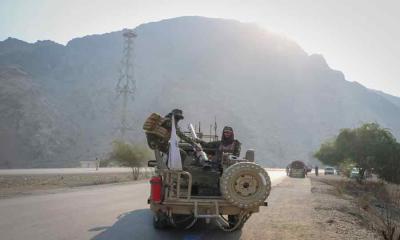
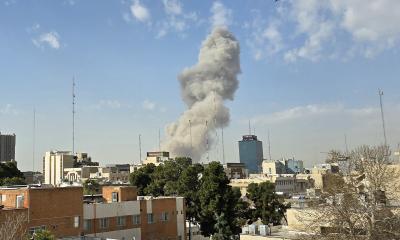
-20260228064648.jpg)
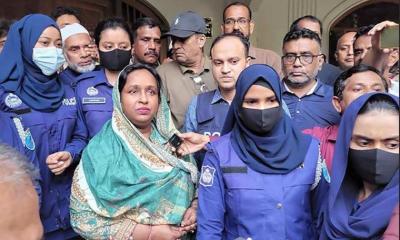
-20260228063029.jpg)
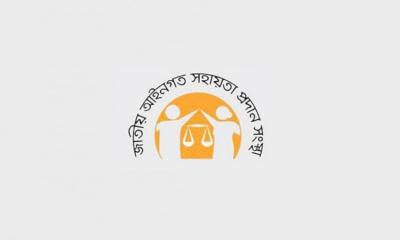
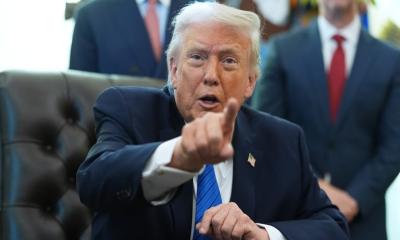
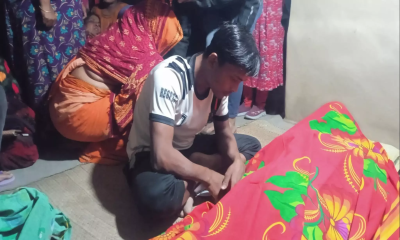

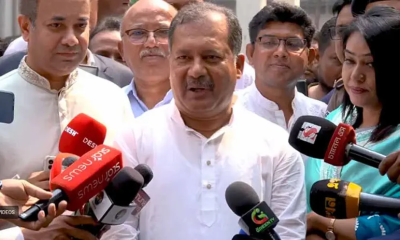
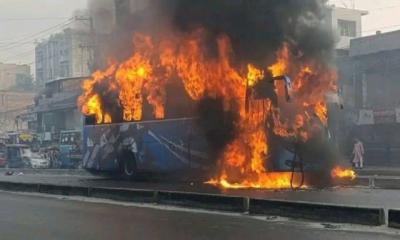
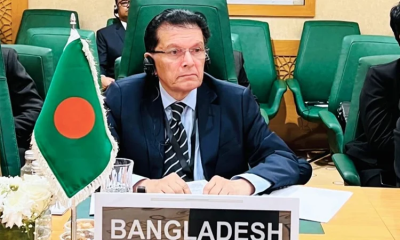

-20260227090008.webp)




-20260224075258.webp)







-20260221022827.webp)

